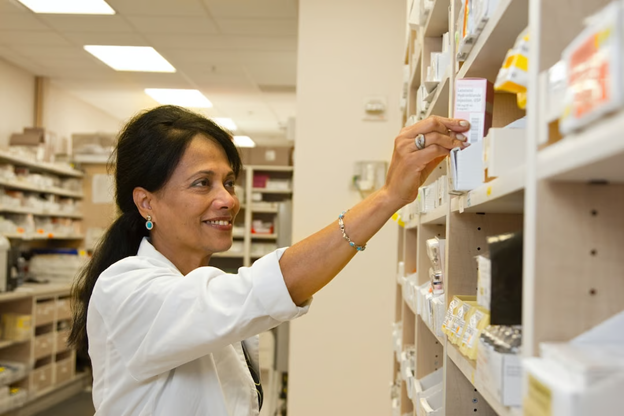Pharmacists play a critical role in our healthcare system, acting as the bridge between patients and healthcare providers. They are experts on pharmaceuticals and their use, offering vital advice on medications, helping patients manage health conditions, and ensuring that prescriptions are filled accurately. For many, the path to becoming a pharmacist is both challenging and rewarding. Here’s a comprehensive guide on how to turn your dream of becoming a pharmacist into a reality.
The Role of Pharmacists in Healthcare
Before you begin your journey, it’s important to understand the pivotal role of pharmacists in healthcare. They are not only medication experts but also crucial members of the healthcare team. Pharmacists are responsible for the safe dispensing of prescriptions, advising patients on the use of medications, and providing health services such as immunizations and health screenings. They often work closely with physicians to choose the most effective and affordable treatments for patients.
Education and Training: Steps to Becoming a Pharmacist
The path to becoming a pharmacist is rigorous and structured. It begins with a strong academic foundation and culminates with a Pharm.D. (Doctor of Pharmacy).
Pre-Pharmacy Requirements
High school students who aspire to become pharmacists should focus on science and math coursework, such as biology, chemistry, physics, and calculus, to prepare for college. Once in college, they must complete pre-pharmacy courses, including general and organic chemistry, biology, and anatomy. Some schools may also require courses in humanities and social sciences to ensure a well-rounded education.
Pharmacy School and Degree Options
After completing the pre-pharmacy requirements, the next step is to enroll in a Pharmacy Doctoral program. This program typically takes four years to complete and includes coursework in pharmacology, pharmaceutical chemistry, and pharmacy law. Many Pharm.D. programs also provide practical experience through internships and rotations in various healthcare settings. Also, you can find a pharmacy school that offers a dual degree program, allowing you to earn both a Pharm.D. and another degree such as an MBA or MPH. That way, you can specialize in a specific area of pharmacy that interests you.
Pharmacist Licensure Examination
Upon graduation from a Pharm.D. program, the final step is to pass the North American Pharmacist Licensure Examination (NAPLEX). This comprehensive exam tests the graduate’s knowledge of pharmacy practice and is one of the requirements for obtaining a license to practice pharmacy.
Skills and Qualities of a Successful Pharmacist
To excel in the profession, aspiring pharmacists should cultivate a range of skills and attributes that go beyond academic qualifications.
Attention to Detail
Pharmacists must be meticulous in their work, with no room for error when it comes to dispensing medications. A single mistake could have serious consequences for a patient’s health, so attention to detail is non-negotiable.
Communication Skills
Effective communication is essential for pharmacists as they interact with patients, physicians, and other healthcare professionals. They must be able to translate complex medical information into language that patients can understand.
Analytical Thinking
Pharmacists regularly encounter complex medication regimens and patient scenarios that require careful analysis. The ability to think critically and make informed decisions is crucial.
Career Outlook and Opportunities in Pharmacy
The demand for pharmacists continues to grow, and the field offers a variety of career paths.
Retail and Hospital Pharmacies
The majority of pharmacists work in community pharmacies, such as retail chains or independent stores, where they dispense medications and provide patient counseling. Others work in hospitals, where they may specialize in areas like pediatrics, oncology, or critical care.
Pharmaceutical Industry
The pharmaceutical industry employs pharmacists in roles related to drug development, sales, marketing, and regulatory affairs. This sector offers opportunities to work with cutting-edge medications and technologies.
Research and Academia
Pharmacists can also pursue careers in research, contributing to the discovery of new drugs and treatment protocols. Additionally, they can teach future pharmacists as faculty members at colleges of pharmacy.
The Impact of Technology on Pharmacy Practice
Advancements in technology are reshaping how pharmacists deliver care and manage medications.
Telepharmacy and Online Services
Telepharmacy allows pharmacists to safely and effectively serve patients in remote or underserved areas. Online services are also becoming more popular, enabling patients to order medications and consult with pharmacists from the comfort of their homes.
Advancements in Medication Management
Emerging technologies like automated dispensing systems and electronic health records (EHRs) are streamlining medication management processes, reducing errors, and improving patient outcomes.

Becoming a pharmacist is a formidable but fulfilling endeavor. It requires dedication, hard work, and a commitment to ongoing learning. As a pharmacist, you will have the opportunity to make a significant impact on the lives of others and contribute to the advancement of healthcare.
If you’re passionate about helping people and interested in the intersection of science and medicine, the profession of pharmacy may be the perfect fit for you. Start by taking the first steps—the path to becoming a pharmacist awaits.







